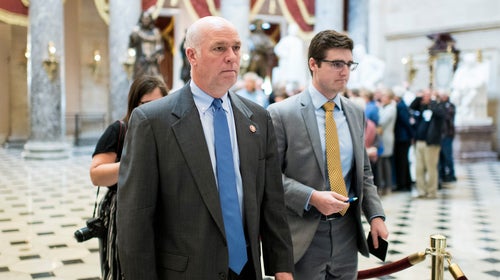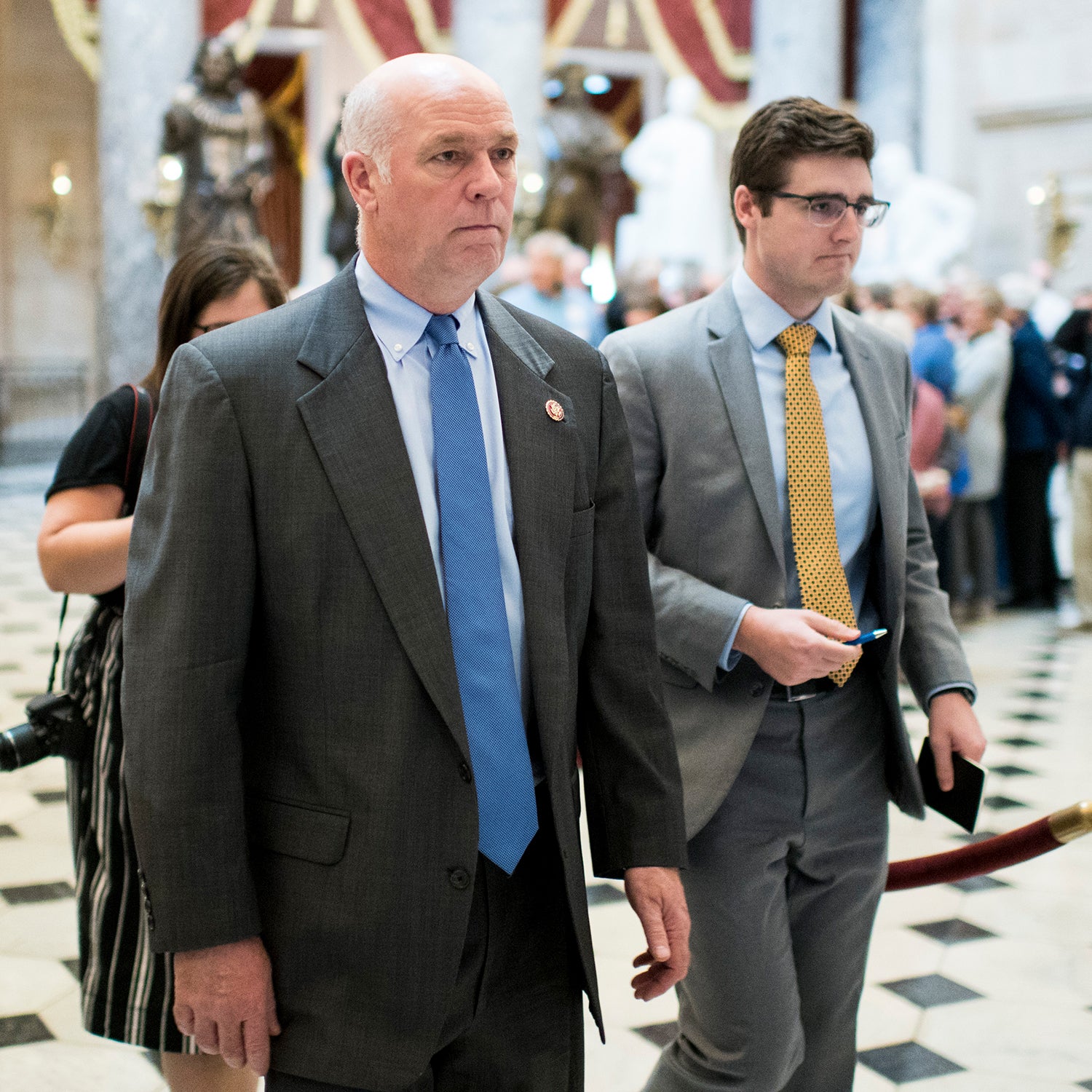MontanaÔÇÖs stream access law┬ágrants anglers, floaters, and other recreational users the ability to access most rivers, creeks, and streamsÔÇöeven where they flow through private property. (This is not always the case in other states.)┬áItÔÇÖs one of the things that makes Montana such a uniquely special place to live, but itÔÇÖs threatened by the stateÔÇÖs Republican candidate for governor, Greg Gianforte, and his potential lieutenant, Kristen Juras, should they be elected. Such a move would represent an unprecedented assault on public access, threatening jobs that rely on outdoor recreation┬áand even potentially impacting┬áthe stateÔÇÖs booming outdoor-recreation economy.╠ř
Between High-Water Lines
The 1972 Montana constitution within its boundaries. This was further clarified by two state supreme court cases in 1984, leading to the passage of the definitive stream access law in 1985. :
ÔÇťAll surface waters that are capable of recreational use may be so used by the public without regard to the ownership of the land underlying the waters.ÔÇŁ
Montana Fish, Wildlife, and Parks : ÔÇťThe public may use rivers and streams for recreational purposes up to the ordinary high-water mark. Although the law gives recreationists the right to use rivers and streams for water-related recreation, it does not allow them to enter posted lands bordering those streams or to cross private lands to gain access to streams.ÔÇŁ
Another law, passed in 2009, confirmed that using state or county roads┬áor bridges. It allows landowners to fence up to those bridges to control their livestock, and it also supplies┬ápublic funds for the installation of gates to provide public access. Landowners may run fences across waterways, and the law gives┬áthe public the right to travel around such barriers, provided they do so┬áÔÇťin the least intrusive manner possible.ÔÇŁ
What all this adds up to is a best-case scenario for public access. Your right to access a river or stream is protected, even if it flows through private property. The rights of private landowners are also protected, as┬áthe public is only able to access rivers and streams within the waterÔÇÖs boundaries, via roadways that intersect them, or through established easements.
ÔÇťMontanaÔÇÖs stream access lawÔÇölike our public landsÔÇöis about who we are as Montanans,ÔÇŁ lieutenant┬ágovernor Mike Cooney wrote┬áin an email to ║┌┴¤│ď╣¤═°. ÔÇťYou donÔÇÖt have to be a multimillionaire to fish on our blue ribbon trout streams.ÔÇŁ Cooney, a Democrat, is also running for governor.╠ř
Of course, the stream access law has been challenged multiple times by those multimillionaires. And  came from governor candidate Gianforte.
Follow the Money
In 1997, Gianforte, then┬áa recent Montana transplant,┬ácofounded a customer-service software company with his wife, Susan, called RightNow Technologies. In 2011, RightNow was acquired by Oracle for $1.8┬ábillion, . Montana senator Steve Daines at the time.╠ř
The Gianfortes┬áestablished a charitable family trust for the primary purpose of . Money from the has gone to everything from . This foundation also backs anti-public-lands and┬áanti-public-access causes.╠ř
Between 2007 and 2013, the Gianforte Family Foundation donated to the Foundation on the Economy and the Environment (FREE). .╠ř▒§│┘ÔÇÖs╠ř, a pro-oil drilling trust from Texas.╠ř
From 2008 to 2017, the Gianforte Family Foundation donated a total of to the Heritage Foundation, which supports┬á and works to .╠ř
In 2013 and 2014, the Gianforte Family Foundation contributed to Americans for Prosperity┬áand listed the organization as a ÔÇťgrantee.ÔÇŁ Politico describes Americans for Prosperity as the┬áÔÇť.ÔÇŁ It┬á┬áto┬ábenefit the oil and gas industries.╠ř
Between 2015 and 2017, the Gianforte Family Foundation gave to the Property and Environment Research Center. Based in Bozeman, Montana, PERC advocates for a free-market approach to environmental problems; in short, that conservation is better handled by private landowners than it is by the government, often taking that to an extreme degree. In 2015, its executive director authored an op-ed in The New York Times calling for . PERC has fought against the Montana stream access law since the early 1980s.
Gianforte in Congress
Following a failed 2016 gubernatorial campaign, Gianforte won the congressional seat vacated by Ryan Zinke when Zinke became interior secretary in 2017.╠ř
There, in collaboration with Steve┬áDaines, Gianforte introduced legislation to strip protections from 700,000 acres of public land in Montana. The measure failed, but according to the┬á, it would have been┬áÔÇťthe single biggest rollback of protected public lands in Montana history.ÔÇŁ
Gianforte has since voted against conservation and environmental protections on , netting him a 5 percent lifetime score from the League of Conservation Voters.╠ř
While serving in Congress, Gianforte expressed support for William Perry PendleyÔÇÖs tenure as acting director of the Bureau of Land Management.╠ř
Last year┬á that he was┬áÔÇťoptimistic about working with Mr. Pendley to promote MontanaÔÇÖs interests.ÔÇŁ And in July, Gianforte said┬áhe was ÔÇťÔÇŁ by PendleyÔÇÖs nomination to officially run the BLM. That nomination was withdrawn two weeks later, when GOP senators in vulnerable seats about being forced to vote for such an unsavory character. In 2001, in an effort to overturn the stream access law. But last month, PendleyÔÇÖs acting status was ruled illegal┬áafter current Montana governor Steve Bullock challenged his anti-public-lands actions.╠ř
GianforteÔÇÖs Lieutenant
Gianforte is running for governor alongside , a lawyer from Great Falls. And her record on the stream access law is almost as troubled has her running mateÔÇÖs.╠ř
When Juras faced criticism for her anti-stream-access-law actions while running for a seat on the Montana Supreme Court in 2016, she for the Helena Independent Record in which she called the law┬áÔÇťsettled,ÔÇŁ praised its balance between public-access and private-property rights, and claimed that her critics were┬áÔÇťyelling wolf.ÔÇŁ┬á
Those critics have reason to worry. brought against the stream access law came in 1987┬áfrom rancher┬áJack Galt, JurasÔÇÖs uncle. The state supreme┬ácourt upheld the law, but its ruling represented the most significant diminishment of public rights under the law to date. A commonly understood interpretation of the law that allowed camping below the high-water mark was determined to be┬áÔÇťoverbroad and unconstitutional,ÔÇŁ according to ┬áthat Juras wrote on the topic.╠řIn that same piece, published in the Vermont Journal of Environmental Law, Juras went on to argue that landowners should have the┬áÔÇťÔÇŁ access, moving ownership of the stateÔÇÖs waters out of public hands and into those of wealthy landowners.╠ř
ÔÇťAttempting to whitewash your record and your stance on public access just because you know itÔÇÖs popular among us voters is unacceptable,ÔÇŁ Kendall Van Dyk, a former state representative and senator, in 2016.╠ř
On the East Gallatin
In 2009, East Gallatin LLC, , sued Montana Fish, Wildlife, and Parks, arguing that an access easement to the East Gallatin River through the property where the Gianfortes live was invalid, since it had been negotiated with a previous owner of the property. It also argued that users of the easement were causing unspecified damages to the property. A fence was installed to block public access .╠ř
The matter was , with Montana Fish, Wildlife, and Parks┬áreturning the fence to its previous boundaries, conducting mitigation work to prevent the spread of weeds (possibly the damage cited in the suit), and restoring public access. You can visit┬áand fish GianforteÔÇÖs property to this day, as you can┬áon any other river or stream in the state.╠ř
ÔÇťIÔÇÖve been very clear all along that public lands must stay in public hands,ÔÇŁ ┬áon Montana Public Radio in 2017, one year before he wrote the legislation that would have stripped protections from hundreds of thousands of┬áacres of state public land.╠ř
Lieutenant┬áGovernor Cooney, noting the┬á┬áthat ÔÇťdepend on our ability to access public lands and streams,ÔÇŁ is standing behind the law. ÔÇťAnyone who wants to mess with that will have to go through me first,ÔÇŁ he warns.╠ř


